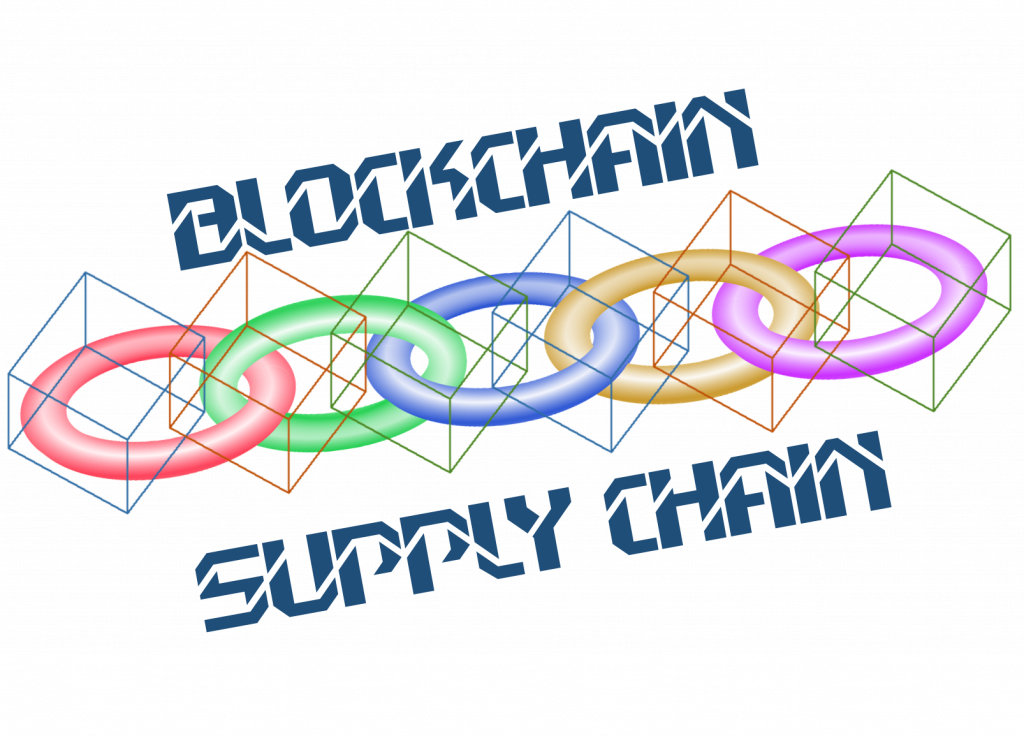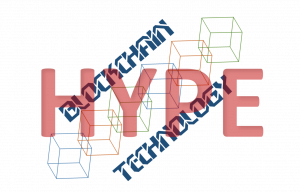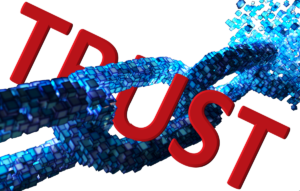Most people are aware blockchain technology originated in the finance sector as cryptocurrencies (e.g., Bitcoin) unfettered by government regulation. Although the irrational enthusiasm for cryptocurrencies has cooled, enthusiasm for blockchain technology has not. Vishnu Rajamanickam (@vishnucr92) notes, “[Blockchain technology] has expanded dramatically … with use cases being identified across a myriad of segments including finance, energy, supply chain and defense.”[1] Nowhere is the enthusiasm for blockchain more evident than in supply chain circles. According to Rajamanickam, that’s because the supply chain sector has the most to gain from successful blockchain implementation. “In many ways,” he writes, “blockchain would be a perfect solution to many issues that plague the industry — opacity across network nodes, an extremely fragmented marketplace, multiple stakeholders and mediocre visibility.”
What you need to know about blockchain technology
“First implemented in 2009,” reports Michael Moore (@notTHEmikemoore), “the technology consists of ‘blocks’ that hold batches of timestamped transactions, with each block linked to the previous one through cryptography, thus forming a chain.”[2] Since the blockchain is a record of transactions, it is often referred to as a distributed ledger. Rajamanickam explains, “Blockchain, by definition, is an immutable distributed ledger. Put in layman terms, blockchain can store and relay information in a secure manner, with its content being distributed and controlled by all the stakeholders in a network. No single stakeholder can claim absolute authority over the network, nor can any single party edit information stored in the system without the explicit consent of every other stakeholder in the system. This ensures visibility and transparency — two vital parameters that have remained elusive across many segments for decades.” In order for the blockchain to work, all stakeholders must follow specific protocols. Moore explains, “There is no centralized server holding the transactions and, because each new block must meet the requirements of the chain, nobody is able to overwrite previous transactions. Other transaction requirements can be added to define what constitutes a valid entry.” Since there are no universally accepted protocols for blockchain transactions, supply chain managers are finding they may be required to use several different distributed ledger solutions. That’s a problem; but one that is being addressed.
Unleashing to the potential of blockchain in the supply chain
Varun Ebenezer, a senior IT audit manager at BMO Financial Group, notes, “Blockchain has emerged as one of the most promising technological developments of the past decade.”[3] Whenever you read words like “promising” and “potential,” your senses should tell you to be cautious. Normally, those terms are applied to things that are either immature or in a state of disrepair. In the case of blockchain, it’s the former. Although the technology has been around for a decade, it remains in its infancy when it comes to implementation. Ebenezer notes, “Blockchain technology has a multitude of benefits, such as enabling peer-to-peer transactions, transparency, cost reduction, speed, fraud mitigation, and security by design. However, as is the case with any emerging technology, there are several risks with blockchain that should be considered by organizations that plan to use it.” Along with the lack of standards, he notes the absence of clear regulatory guidance. “Due to these conditions,” he writes, “caution must be used when deploying blockchain technology at an enterprise level.”
Despite the challenges, enthusiasm for distributed ledgers has remained strong because they can help cope with supply chain complexity. Sunil Thomas, the Chief Operations Officer at Selerant, observes, “The supply chain is only getting more complex. With increasing globalization, manufacturers already struggle to manage working with vendors in different time zones, speaking different languages and dealing with different global regulations. As manufacturers increasingly rely on digitization and automation, we’re certain to see the combination of blockchain and smart contracts playing a significant role in protecting trade secrets and ensuring quality and uniformity throughout the entire ecosystem.”[4] Hope Liu (@hopeEximchain), CEO of Eximchain, agrees with that observation and adds that complexity can result in costly mistakes. She writes, “Problems dealing with data can lead to expensive reconciliations and negative impact on customer fulfillment. Blockchain technology can bring consistency, privacy and security to transactions that are booming due to e-commerce sales. … Blockchain can address a few significant problems that the industry is grappling with, all of which have to do with data.”[5]
Ebenezer, who is a member of ISACA (previously known as the Information Systems Audit and Control Association), notes, “ISACA has developed a Blockchain Preparation Audit Program to provide organizations with a framework to manage blockchain. The program covers six key areas: pre-implementation, governance, development, security, transactions and consensus. These areas touch upon the primary risks that are associated with use of blockchain.” The objectives of the audit program include:
- Assessing an organization’s blockchain solution to determine whether it is adequately designed and operationally effective.
- Identifying blockchain risks which could result in reputational and/or material impact.
- Providing organizations with a holistic perspective on blockchain technology, with consideration for both technical and non-technical factors.
Ebenezer concludes, “When properly deployed, blockchain can provide substantial benefits. However, blockchain is not practical for every organization, and management must ensure that its use supports business objectives accordingly.” Any organization thinking about adopting a distributed ledger solution would be wise to do their homework before beginning.
Concluding thoughts
Despite the challenges associated with blockchain implementation, Liu insists, “The future of blockchain as an underlying technology for supply chains, seems quite set.” She adds, “The supply chain industry has no choice but to be progressive — the opportunities from using the technology are huge; on the other hand, the costs of not keeping up are great as well.” The food supply chain is particularly suited for blockchain technology because there is an increased attention being paid to tainted foods and product recalls. The food industry isn’t the only sector worrying about recalls. Atul Mahamuni, a vice president with Oracle, notes, “There is a significant cost of recalls in today’s supply chains. Just in the past few years, we have witnessed several brands being eroded due to the excessive cost of recalls. The well-publicized recalls of faulty airbags, cell phone batteries, and fresh produce such as lettuce and spinach remind us of what is at stake. On average, a typical product recall costs several million dollars. And the global supply chain loses billions of dollars due to broad-based recalls every year.”[6] Blockchain can help address these challenges and inspire greater consumer confidence.
Footnotes
[1] Vishnu Rajamanickam, “In the blockchain race, supply chains stand to gain the most,” Freightwaves, 8 February 2019.
[2] Michael Moore, “What is blockchain? Everything you need to know,” Techradar.pro, 15 January 2019.
[3] Varun Ebenezer, “How to approach blockchain deployment while mitigating risk,” Information Management, 12 February 2019.
[4] Sunil Thomas, “How Blockchain Could Ensure Supply Chain Consistency,” Forbes, 9 November 2018.
[5] Hope Liu, “Blockchain and Supply Chains: Unleashing the Potential,” SupplyChainBrain, 7 February 2019.
[6] Atul Mahamuni, “How to Unleash Blockchain into Your Supply Chain,” Material Handling & Logistics, 3 February 2019.





